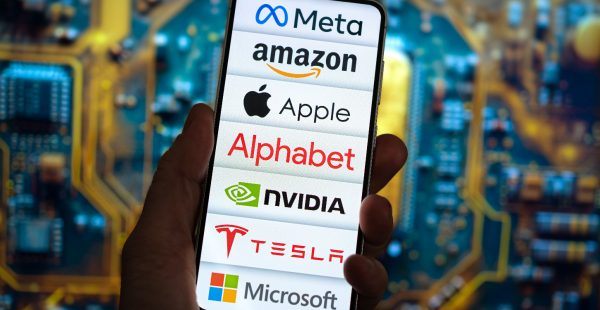Reliving the ’90s tech bubble, this time with AI and the M7

Epoch Investment Partners, a partner of GSFM, has signalled for investors to remain weary of falling into a ’90s-tech-bubble-like situation, as investments in artificial intelligence (AI) and the Magnificent Seven (M7) skyrocket.
Global Investment Strategist, Kevin Hebner, said there were several reasons why this uptrend will soon reach its tipping point, as it triggers reminders of the late 1990s’ tech bubble.
“The consensus expectations for earnings growth this year for the entire S&P 500 is 12 per cent, but that is just an average, and for 493 companies it’s only 5 per cent, roughly in line with nominal GDP growth. For the magnificent seven it is 55 per cent,” he said.
“We have this enormous dichotomy that’s being driven by the build out of infrastructure to support AI. These are all the picks and shovels, including the compute, the clouds, and the semiconductors, that make up the operating stack.
“This is going to drive earnings certainly through 2024 and into 2025, but beyond this is less certain.
“There is enormous concentration in terms of stock market cap for a small number of stocks, valuations are extreme and there is a euphoria of public comment driving prices.
“It’s always the case that there are titans. Titans rise and titans fall and over the past 30 years there has been a lot of movement in the top 25 tech companies, with the exception of Microsoft and maybe Apple.
“With a disruptive technology like AI it is not clear which ones will or will not be able to pivot or adapt, which is why I don’t think it makes sense just to go out and buy the incumbents, particularly now when there are several reasons to believe that we are in the early stages of an AI bubble.”
Hebner said further opportunities for investors to capitalise on lie in the aspects of AI that are set to make economic contributions to society and the economy; however, this trajectory still remains quite unclear at the moment.
“A decade may sound like a long time. But looking at the experience with previous GPTs – such as the internet or electricity – it did take a long time to see the economic value-add. So investors will need to be patient,” he said.
“Healthcare represents about 20 per cent of GDP and is one area where we hope AI will have a substantial impact, even though it is highly institutionalised and resistant to change. We can see positive impacts in areas such as diagnostics or drug discovery. Similarly we see education as another big beneficiary of AI. We are already starting to see these positive impacts.
“We’ve also seen unconventional applications of AI, one of which I like the most is from agricultural equipment company, John Deere. It has made inroads with its combine harvester, a labour saving machine designed to cultivate seeds. The company now has more software engineers than it does mechanical engineers.
“The combines they produce perform numerous tasks across a field such as seeding, fertilising and de-weeding. The combines test the soil by taking samples and access the quality of the soil and what tasks need to be performed. All these tasks are performed using satellite GPS, so drivers aren’t even needed to navigate these machines.
“John Deere is a very interesting case of a traditional company trying to pivot and become an AI company. AI augments our abilities, and it is going to make us better. We need to embrace it in the same way that we needed to embrace PCs and the internet and appreciate how they would help us do our job even better.
“Companies that invest in AI to achieve efficiencies and cost savings, are the ones that are on our investment radar.”












Some good ideas. Certainly, the existing model between "sophisticated" and retail investors is fraught with danger. Having $2 mil of…
APRA's Suzanne Smith either ignorance, or a pig headed inability for self evaluation. APRA and politicians are a key reason…
48...
Summed up precisely
GOTCHA!!!!!!! The hide of this corrupted fool. It just goes to show the level of corruption the Industry Funds are…